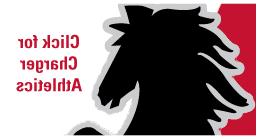As a biology major at Dominican University, you’ll receive the extensive benefits of gaining a broad-based liberal arts education while choosing a specialization that will prepare you for the science-related career of your dreams. Our biology degree will channel your passion for life sciences into a solid foundation for advanced study of the sciences or for a rewarding and fulfilling career in any discipline involving plants, animals, people, or the earth.
You can choose to pursue a Bachelor of Science or Bachelor of Arts with a minor or major in biology, a teaching degree with a major or minor in biology, or even a business degree with a biology component. And if you’ve got your heart set on further study, we have articulation agreements with the following institutions:
- American University of Antigua School of Medicine
- New York Medical College Graduate School of Basic Medical Sciences
- St Elizabeth University, NJ, for the Physician Assistant program
- Ross University, St. Kitts, West Indies, for Veterinary Medicine
With a degree in biology you might also pursue a Doctor of Physical Therapy program at Dominican University.
3+3 B.A. in Biology + Doctor of Physical Therapy
Traditional means of graduating with a Doctorate in Physical Therapy can take an average of 7-8 years between a bachelor’s degree, prerequisite requirements and the Physical Therapy Program. Identifying an early interest in the Physical Therapy profession while in high school can help you complete two degrees in 6 years.

Watch Video
Complete Your Inquiry Today to Receive Valuable Resources!
By filling out the inquiry form, you’ll receive:
- Comprehensive Program Information
- Customized Scholarship and Financial Aid Offers
- Personalized Support from an Admissions Counselor
Don’t miss out—submit your inquiry now!
Request Information
A unique biology degree that gives you in-demand hard and soft skills to increase your employability and potential salary or prepare you for grad school
The highest levels of personal support
Staff who are committed to your success
The finest small-university athletic program in the region
A spirited campus environment
Close proximity to New York City and three major airports
The Dominican Difference
It doesn’t matter who you are, it doesn’t matter what sport you play, or what club you’re in, everyone in this school is a family and we all love to live together and be a part of this campus.
Jonathan Brown, ’14
15k+
Alumni
76
Full-time Faculty
17
Miles from NYC
100% of First Time
Full-Time Freshman Receive Financial Aid
Job Opportunities
As a result of the coursework and research experiences that you’ll have throughout our biology program, when you graduate, you’ll be qualified to enter the STEM workforce in any of a wide variety of fields (e.g. biomedicine (drug and vaccine development), plant biology, or environmental sciences) or to continue on to post-graduate studies. For example, you might choose to go to medical school, pursue a post-graduate professional degree in a health field (like physical therapy, dentistry, veterinary science, or pharmacy), or pursue a post-graduate research degree (masters and PhD).
Here are some examples of where our alumni have gone on to work and study:
- Jovan Bertrand — Hackensack Meridian School of Medicine
- Nikita Patel — Woodrow Wilson Teaching Fellowship recipient
- Tahinah Lamour — Regeneron
- Rebecca Birmingham — Aurobindo Pharma USA, Inc.
- Yunia Alvarez and Lauren Drake — Nathan Kline Institute
- Samantha Fitzgerald — Cary Institute
- Tara Carney — SUNY Upstate Medical College PhD Biomedical Sciences
- Dylan Ferraro — American University of Antigua Medical College
- Kimberly Acevedo — UMass Amherst PhD Food Science/Organismal and Evolutionary Biology
- Darian Fernandez, Andrea Zuluaga, Michael Mezzio and Michael Bauer — Dominican University DPT program
- Arianna Medina — Pfizer
- Amanda Saab — Fairleigh Dickinson College of Pharmacy
- Gabrielle Schneider — New York University
- Linda Dantico — Pfizer; University of Florida, MSP in Pharmaceutical Sciences with a concentration in Forensic Science
- Naija Rodriguez — Vitalant
- Shanna Wood — Mercy College PA program
- Eric Valdes — Temple University School of Dentistry
- Chet Kleynowski — TRADEBE, Lab chemist
- Jamie McGinn — Philadelphia College of Osteopathic Medicine PA program
- Alina Panchychyn — MS in Biochemistry and Molecular Biology, Pace University; Aurobindo Pharma USA, Inc.
What You’ll Learn
Throughout your biology program, you’ll develop extensive content knowledge, learn proper laboratory techniques, drastically improve your critical thinking, problem-solving, and communication skills, as well as:
- Use basic and advanced laboratory equipment
- Use relevant computer applications and information technology
- Design and conduct a scientific experiment to reach a logical conclusion
- Learn and work collaboratively
- Prepare and present scientific results to general audiences as well as to fellow scientists
- Promote science in the service of the larger community
- Have ownership of an authentic research project
- Get the chance to publish and contribute to the scientific community
- Use regular milestones to measure your progress
- Make a meaningful contribution to scientific progress
At Dominican University, you’ll pursue and publish new scientific knowledge through inquiry-based instruction and original research, gaining valuable transferable skills in both your biology major (or minor) courses and through your research experiences. As a result, our biology degree will ensure you’re well-qualified to pursue a wide range of careers and post-graduate fields of study.
Our programs are incredibly hands-on and will give you significant real-world skills that will set you apart from your competition. For example, we’ve set aside a plot of land on our campus for students to study. If you take courses in chemistry, ecology, botany, or general biology you’ll get to analyze the soil and conduct biological surveys of the plants, microbes, and other soil fauna. You’ll then amend the soil with compost and/or commercial fertilizers, collaborate with your fellow students to choose and transplant plants into the soil, conduct follow-up testing, and analyze the changes that result from your soil treatments and addition of plants. This project will give you valuable technical skills across a range of disciplines as well as help you build the vital collaboration (including cross-disciplinary collaboration) and communication skills that are so in demand in all industries.
As a Dominican University biology major, you’ll also be supported and encouraged to pursue a research internship. Our students have secured prestigious research internships at:
- Albert Einstein College of Medicine
- Lamont Doherty Earth Observatory
- Johns Hopkins University
- New York University
- The Jackson Lab
- Clemson University
- University of Nevada Las Vegas
- Florida Atlantic University
Degree Details
Department Staff

Regina Alvarez
Office: 845-848-6007
Location: Prusmack Center 308

Elena Guevara-Talarico

AnnMarie DelliPizzi Citardi
Office: (845) 848-6009
Location: Prusmack Center 323


Jovan Žigić
Office: 845-848-6015
Location: Prusmack Center 308
Area(s) of Specialization: Mathematics, Physics, Information Technology


